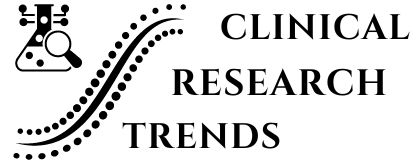The Integration of Genomics in Clinical Research
In recent years, genomics has emerged as a pivotal force in the landscape of medical research, transforming how we understand and treat diseases. By decoding the intricate blueprint of our DNA, genomics offers unprecedented insights into the mechanisms of health and illness, enabling more precise and personalized medical interventions. This transformative impact of genomics is particularly profound in clinical research, where it is revolutionizing drug development, patient stratification, and the overall approach to disease management.
This blog delves into the integration of genomics in clinical research, exploring its significance and the ways it is reshaping the medical field. We will examine how genomic technologies are being applied in clinical trials, the benefits they bring to patient outcomes, and the challenges and ethical considerations that accompany this rapid advancement. Through this exploration, we aim to provide a comprehensive understanding of how genomics is driving innovation in clinical research and what the future holds for this dynamic field.
Understanding Genomics
Genomics is the study of the entire genetic material of an organism. It encompasses the structure, function, evolution, and mapping of genomes. Unlike genetics, which focuses on individual genes and their roles in inheritance, genomics examines all of an organism's genes collectively, along with their interactions and functions. Key concepts in genomics include DNA sequencing, gene expression, genome mapping, and bioinformatics. These components work together to provide a holistic view of an organism's genetic makeup and its implications for health and disease.
Historical Context: The Evolution of Genomics in Medical Research
The field of genomics has undergone remarkable evolution since its inception. Early genetic research laid the foundation, with milestones such as the discovery of DNA's double-helix structure by James Watson and Francis Crick in 1953. This breakthrough paved the way for more detailed genetic studies, culminating in the ambitious Human Genome Project (HGP) launched in 1990.
The Human Genome Project and Its Significance
The Human Genome Project was an international research endeavor with the goal of mapping and understanding all the genes of the human species. Completed in 2003, it provided the first comprehensive sequence of the human genome. This monumental achievement has had profound implications for medical research. It has enabled scientists to identify genetic variations associated with diseases, understand complex genetic interactions, and develop targeted therapies based on an individual’s genetic profile. The HGP marked the beginning of the genomic era, setting the stage for numerous advancements in personalized medicine and clinical research.
The Role of Genomics in Clinical Research
Enhancing the Understanding of Disease Mechanisms
Genomics has significantly deepened our understanding of the underlying mechanisms of various diseases. By analyzing the entire genome, researchers can identify genetic mutations and pathways that contribute to the onset and progression of diseases. This comprehensive approach allows for the identification of novel therapeutic targets and the development of more effective treatment strategies. For example, in cancer research, genomics has revealed specific genetic alterations that drive tumor growth, enabling the creation of targeted therapies that specifically address these mutations.
Identifying Genetic Variations and Their Impact on Health
One of the most powerful applications of genomics in clinical research is the identification of genetic variations and their correlation with health outcomes. Single nucleotide polymorphisms (SNPs), copy number variations (CNVs), and other genetic alterations can influence an individual's susceptibility to diseases, response to medications, and overall health. By studying these genetic variations, researchers can predict disease risk, tailor treatments to individual genetic profiles, and identify patients who are likely to benefit from specific therapies. This approach is exemplified in the field of pharmacogenomics, where genetic testing is used to optimize drug selection and dosing for individual patients.
Improving Disease Diagnosis and Prognosis
Genomics is revolutionizing disease diagnosis and prognosis by enabling more precise and early detection of illnesses. Traditional diagnostic methods often rely on observable symptoms and may not detect diseases until they are well-advanced. In contrast, genomic testing can identify genetic markers associated with diseases long before symptoms appear, allowing for earlier intervention and better management of health conditions. Moreover, genomic data can provide valuable prognostic information, helping clinicians predict disease outcomes and tailor treatment plans accordingly. For instance, in the context of rare genetic disorders, genomic sequencing can pinpoint the exact genetic cause of a disease, leading to more accurate diagnoses and targeted therapies.
Applications of Genomics in Clinical Trials
Personalized Medicine
Tailoring Treatments Based on Individual Genetic Profiles
One of the most impactful applications of genomics in clinical trials is the development of personalized medicine. By leveraging an individual’s genetic information, clinicians can tailor treatments to achieve optimal outcomes. This approach moves away from the traditional one-size-fits-all model, recognizing that genetic differences among patients can significantly influence their response to treatments.
Examples of Personalized Treatment Strategies
Personalized medicine is already making a significant impact in various therapeutic areas. For example, in oncology, treatments such as trastuzumab (Herceptin) are designed to target specific genetic mutations in breast cancer patients with HER2-positive tumors. Similarly, in cardiology, genetic testing can identify patients with familial hypercholesterolemia, allowing for the implementation of personalized lipid-lowering strategies. These examples highlight how genomic data can inform treatment decisions and improve patient outcomes.
Biomarker Discovery
Identifying Genetic Biomarkers for Disease and Treatment Response
Genomics plays a crucial role in the discovery of biomarkers—biological indicators that can predict disease presence, progression, or response to treatment. Genetic biomarkers can provide insights into the molecular mechanisms of diseases and help identify patients who are likely to benefit from specific therapies.
Role of Biomarkers in Clinical Trial Design and Patient Stratification
In clinical trials, biomarkers are used to enhance trial design and improve the accuracy of study results. By stratifying patients based on their genetic biomarkers, researchers can ensure that clinical trials are more targeted and efficient. This stratification allows for the selection of patients who are most likely to respond to the investigational treatment, thereby increasing the likelihood of demonstrating the therapy's efficacy. For example, in the development of targeted cancer therapies, biomarkers such as EGFR mutations are used to identify patients who are more likely to benefit from specific treatments.
Targeted Therapies
Development of Therapies Aimed at Specific Genetic Mutations
Targeted therapies are designed to specifically address genetic mutations that drive disease processes. These therapies are developed based on the understanding of the genetic alterations that contribute to the disease, allowing for a more focused and effective treatment approach.
Case Studies of Successful Targeted Therapies
One of the most well-known examples of targeted therapy is imatinib (Gleevec), used to treat chronic myeloid leukemia (CML). Imatinib targets the BCR-ABL fusion gene, a genetic abnormality found in most CML patients. Another example is the use of vemurafenib (Zelboraf) for melanoma patients with BRAF V600E mutations. These case studies illustrate how targeted therapies can provide significant clinical benefits by directly addressing the genetic basis of diseases.
Pharmacogenomics
Studying How Genes Affect Drug Metabolism and Response
Pharmacogenomics explores how an individual’s genetic makeup affects their response to drugs. This field aims to optimize drug therapy by considering genetic factors that influence drug metabolism, efficacy, and the risk of adverse effects.
Applications in Optimizing Drug Dosing and Reducing Adverse Effects
Pharmacogenomic testing can guide drug dosing to maximize therapeutic effects while minimizing the risk of side effects. For instance, genetic testing for variations in the CYP2C9 and VKORC1 genes can inform the appropriate dosing of warfarin, a common anticoagulant, reducing the risk of bleeding complications. Similarly, genetic testing for HLA-B*5701 can identify patients at risk of hypersensitivity reactions to the HIV drug abacavir, ensuring safer and more effective treatment regimens. These applications demonstrate how pharmacogenomics can enhance the safety and efficacy of drug therapies.
Through these diverse applications, genomics is transforming clinical research, enabling more precise, effective, and personalized approaches to healthcare. The integration of genomic data into clinical trials is paving the way for innovations that hold the promise of significantly improving patient outcomes and advancing the field of medicine.
Technologies Enabling Genomics in Clinical Research
Next-Generation Sequencing (NGS)
Overview of NGS Technology and Its Applications
Next-Generation Sequencing (NGS) is a revolutionary technology that has transformed genomic research by allowing the rapid sequencing of entire genomes. Unlike traditional sequencing methods, which are time-consuming and costly, NGS can sequence millions of DNA fragments simultaneously, significantly speeding up the process and reducing costs. NGS has a wide range of applications in clinical research, including whole-genome sequencing, targeted gene sequencing, RNA sequencing, and epigenetic profiling. This versatility makes it a powerful tool for understanding genetic variations and their impact on health.
Advantages of NGS Over Traditional Sequencing Methods
NGS offers several advantages over traditional sequencing methods. First, its high throughput capability allows for the analysis of large numbers of samples in a relatively short time. Second, the accuracy and depth of sequencing provided by NGS enable the detection of rare genetic variants and complex mutations that might be missed by older methods. Third, the cost-effectiveness of NGS makes it accessible for large-scale studies and clinical applications. These advantages have made NGS the gold standard in genomic research and a critical technology for advancing personalized medicine and clinical trials.
CRISPR and Gene Editing
Introduction to CRISPR Technology
CRISPR (Clustered Regularly Interspaced Short Palindromic Repeats) is a groundbreaking gene-editing technology that allows for precise, targeted modifications to the genome. By using a guide RNA to direct the Cas9 enzyme to a specific DNA sequence, CRISPR can introduce cuts at desired locations, enabling the addition, deletion, or alteration of genetic material. This technology has revolutionized genetic research and has vast potential in clinical applications.
Applications of CRISPR in Clinical Research and Therapeutic Development
CRISPR is being used in clinical research to create models of genetic diseases, study gene functions, and develop new therapies. In therapeutic development, CRISPR holds promise for treating genetic disorders by correcting disease-causing mutations. For example, clinical trials are underway to use CRISPR to treat conditions like sickle cell anemia and beta-thalassemia by editing the genes responsible for these diseases. Additionally, CRISPR is being explored for cancer therapy, where it can be used to modify immune cells to better target and destroy cancer cells. The precision and versatility of CRISPR make it a powerful tool for advancing personalized medicine and developing innovative treatments.
Bioinformatics and Computational Genomics
Role of Bioinformatics in Analyzing Genomic Data
Bioinformatics plays a crucial role in managing and analyzing the vast amounts of data generated by genomic technologies. It involves the use of computational tools and algorithms to interpret complex genomic data, identify genetic variations, and understand their biological significance. Bioinformatics enables researchers to integrate and analyze data from various sources, providing a comprehensive view of the genome and its role in health and disease.
Tools and Platforms for Genomic Data Management and Analysis
Several tools and platforms have been developed to support genomic data management and analysis. These include:
- Genome Browsers: Tools like the UCSC Genome Browser and Ensembl allow researchers to visualize and explore genomic data, providing insights into gene structure, function, and regulation.
- Sequence Alignment Tools: Software like BWA and Bowtie are used to align sequencing reads to a reference genome, enabling the identification of genetic variants.
- Variant Calling Tools: Tools such as GATK and SAMtools are used to detect genetic variations, including single nucleotide polymorphisms (SNPs) and insertions/deletions (indels).
- Data Analysis Platforms: Platforms like Galaxy and BaseSpace provide user-friendly interfaces for performing various genomic analyses, from sequence alignment to variant calling and annotation.
- Machine Learning and AI: Advanced algorithms and machine learning techniques are increasingly being used to predict disease risk, treatment response, and other clinically relevant outcomes based on genomic data.
These tools and platforms are essential for harnessing the full potential of genomic data, enabling researchers to uncover new insights and drive advancements in clinical research.
Ethical, Legal, and Social Implications (ELSI)
Privacy and Data Security
Ensuring the Confidentiality of Genetic Information
The rise of genomics in clinical research brings significant ethical, legal, and social implications, particularly concerning privacy and data security. Genetic information is highly sensitive and unique to each individual, making its protection paramount. Ensuring the confidentiality of genetic data involves implementing robust security measures to prevent unauthorized access and breaches. This includes encrypting data, utilizing secure data storage solutions, and employing strict access controls to ensure that only authorized personnel can access genetic information.
Addressing Concerns About Data Breaches and Misuse
Data breaches pose a severe threat to the integrity of genetic information, potentially leading to misuse such as genetic discrimination or unauthorized genetic profiling. To address these concerns, researchers and institutions must adhere to stringent data protection regulations like the General Data Protection Regulation (GDPR) in Europe and the Health Insurance Portability and Accountability Act (HIPAA) in the United States. Additionally, ongoing efforts to develop international standards and best practices for genomic data security are essential to maintaining public trust and safeguarding individual privacy.
Informed Consent
Importance of Obtaining Informed Consent for Genomic Research
Informed consent is a cornerstone of ethical genomic research, ensuring that participants are fully aware of the nature, purpose, and potential risks of the study. Obtaining informed consent is particularly critical in genomics, where the implications of sharing genetic information can be far-reaching and complex. Researchers must provide clear and comprehensive information about the study, including how genetic data will be used, stored, and shared, as well as any potential risks and benefits.
Strategies for Ensuring Comprehensive Understanding by Participants
To ensure participants have a thorough understanding of the study, researchers can employ several strategies. These include using plain language and avoiding technical jargon in consent forms, providing informational sessions or videos, and offering opportunities for participants to ask questions and discuss concerns. Additionally, continuous consent processes, where participants are regularly updated and re-consented throughout the study, can help maintain transparency and trust.
Equity and Access
Addressing Disparities in Access to Genomic Testing and Therapies
The benefits of genomic research and personalized medicine must be accessible to all populations, yet disparities in access to genomic testing and therapies persist. These disparities can stem from socioeconomic, geographic, and racial factors, leading to unequal health outcomes. Addressing these issues requires concerted efforts to reduce barriers to access, such as lowering the cost of genomic testing, increasing availability in underserved areas, and ensuring that diverse populations are represented in genomic studies.
Promoting Inclusive Research Practices
Inclusive research practices are essential to ensuring that the advancements in genomics benefit everyone. This includes designing studies that are representative of diverse populations and actively recruiting participants from various backgrounds. Collaborative efforts with community organizations and advocacy groups can help build trust and engagement with underrepresented communities. Furthermore, ensuring that research findings are communicated in culturally sensitive and accessible ways can promote broader understanding and acceptance of genomic medicine.
Challenges in Integrating Genomics into Clinical Research
Technical and Logistical Challenges
Managing and Analyzing Large Volumes of Genomic Data
One of the foremost challenges in integrating genomics into clinical research is managing and analyzing the immense volumes of data generated. Genomic sequencing produces vast amounts of information that require sophisticated computational tools and substantial storage capacity. Handling this data effectively necessitates advanced bioinformatics platforms capable of processing, analyzing, and interpreting complex genetic information. Researchers must also contend with issues related to data standardization and integration, ensuring that data from different sources and technologies are compatible and comparable.
Ensuring Accuracy and Reproducibility of Genomic Findings
The accuracy and reproducibility of genomic findings are critical for their application in clinical settings. Variability in sample preparation, sequencing technologies, and data analysis methods can lead to inconsistent results. To address these challenges, researchers must adopt standardized protocols and rigorous quality control measures. Ensuring reproducibility also involves validating findings through independent studies and cross-referencing results with existing genomic databases. This meticulous approach is essential for building confidence in genomic data and its clinical utility.
Regulatory and Compliance Issues
Navigating the Regulatory Landscape for Genomic Research
The regulatory landscape for genomic research is complex and continually evolving. Researchers must navigate a myriad of regulations that govern the use of genetic data, including ethical considerations, privacy laws, and guidelines for clinical applications. Different countries have varying regulations, which can complicate international collaborations and studies. Staying abreast of regulatory changes and ensuring compliance with local and international laws is crucial for the successful integration of genomics into clinical research.
Ensuring Compliance with International Guidelines and Standards
Compliance with international guidelines and standards, such as those set by the International Conference on Harmonisation (ICH) and the World Health Organization (WHO), is vital for maintaining the integrity and credibility of genomic research. These guidelines cover aspects such as ethical conduct, data protection, and quality assurance. Researchers must implement robust compliance frameworks to adhere to these standards, ensuring that their studies meet the highest ethical and scientific benchmarks. This involves continuous training and education for research teams and regular audits of research practices.
Cost and Resource Considerations
Addressing the High Costs of Genomic Testing and Analysis
The high costs associated with genomic testing and analysis pose a significant barrier to the widespread adoption of genomics in clinical research. Sequencing technologies, data storage, and computational resources require substantial financial investment. These costs can be prohibitive, particularly for smaller research institutions and studies involving large cohorts. Strategies to mitigate these costs include leveraging economies of scale through large collaborative projects, negotiating bulk pricing for sequencing services, and seeking funding from government grants, private investors, and philanthropic organizations.
Strategies for Resource Allocation and Funding
Effective resource allocation and securing adequate funding are critical for sustaining genomic research. Researchers must prioritize their spending, focusing on high-impact projects and efficient use of available resources. Grant applications and funding proposals should highlight the potential clinical and societal benefits of the research, demonstrating value to funding bodies. Additionally, partnerships with industry stakeholders, such as pharmaceutical companies and biotech firms, can provide financial support and access to advanced technologies. Strategic resource management ensures that genomic research can progress despite financial constraints, ultimately driving innovation and discovery in clinical medicine.
Case Studies and Success Stories
The integration of genomics into clinical research has already led to numerous success stories, demonstrating its transformative potential. Below are examples of clinical research studies that have leveraged genomics to achieve groundbreaking results.
Case Study 1: Genomic Profiling in Oncology for Targeted Therapy Development
One of the most significant successes in genomic research is its application in oncology. Genomic profiling of tumors allows for the identification of specific genetic mutations that drive cancer progression. This information is crucial for developing targeted therapies that directly address these mutations, leading to more effective and personalized treatments.
Example: Notable Labs and Precision Oncology
Notable Labs has been at the forefront of applying genomic profiling to develop targeted cancer therapies. In a recent clinical trial, Notable Labs used genomic data to identify biomarkers associated with specific cancer types. This information was used to tailor treatments to individual patients, resulting in significantly improved outcomes. Patients receiving these personalized therapies showed higher response rates and better overall survival compared to those receiving standard treatments. This case study highlights the power of genomics in revolutionizing cancer treatment and improving patient outcomes.
Case Study 2: Pharmacogenomics in Personalized Medication Management
Pharmacogenomics, the study of how genes affect a person’s response to drugs, is another area where genomics has made a profound impact. By understanding the genetic factors that influence drug metabolism and response, clinicians can tailor medication regimens to individual patients, optimizing efficacy and minimizing adverse effects.
Example: Personalized Warfarin Dosing
Warfarin, a commonly used anticoagulant, has a narrow therapeutic window, and its dosing can be challenging. Variations in genes such as CYP2C9 and VKORC1 significantly affect how patients metabolize and respond to warfarin. A pharmacogenomic approach to warfarin dosing involves genetic testing to identify these variations, allowing clinicians to tailor the dosage for each patient. Studies have shown that this personalized dosing strategy reduces the risk of bleeding complications and improves therapeutic outcomes. This case demonstrates how pharmacogenomics can enhance medication safety and effectiveness.
Case Study 3: Using Genomics for Early Disease Detection and Prevention
Genomics is also playing a crucial role in the early detection and prevention of diseases. By identifying genetic markers associated with increased risk for certain conditions, individuals can take proactive measures to monitor their health and mitigate risks.
Example: Genomic Screening for Hereditary Breast and Ovarian Cancer
Genomic screening for mutations in the BRCA1 and BRCA2 genes has become a standard practice for identifying individuals at high risk for hereditary breast and ovarian cancer. Women with these mutations have a significantly higher risk of developing these cancers. Early identification through genomic screening allows for preventive measures, such as increased surveillance, lifestyle changes, and prophylactic surgeries, which can significantly reduce the risk of cancer development. This approach to early detection and prevention exemplifies how genomics can empower individuals to make informed health decisions and improve long-term outcomes.
Future Directions in Genomics and Clinical Research
Advances in Genomic Technologies
Emerging Technologies and Their Potential Impact
The field of genomics is continually evolving, with new technologies emerging that promise to further revolutionize clinical research. Innovations such as single-cell sequencing, long-read sequencing, and advanced CRISPR techniques are pushing the boundaries of what is possible in genomic research. Single-cell sequencing allows for the analysis of individual cells, providing insights into cellular heterogeneity and the microenvironments of tissues. Long-read sequencing technologies, like those developed by PacBio and Oxford Nanopore, offer more accurate sequencing of complex genomic regions, enhancing our understanding of structural variations and repetitive sequences.
Emerging technologies like CRISPR-Cas9, CRISPR-Cas12, and base editing are expanding the capabilities of gene editing, allowing for more precise and efficient genetic modifications. These advancements have the potential to create more effective therapies for genetic disorders and enable new approaches in functional genomics. The integration of artificial intelligence and machine learning with genomic data analysis is another promising trend, enhancing the ability to identify patterns and predict outcomes based on vast datasets.
Future Trends in Genomic Research and Applications
Looking ahead, several trends are likely to shape the future of genomic research and its applications. Personalized medicine will continue to expand, with increasing use of genomic information to tailor treatments to individual patients. The rise of direct-to-consumer genetic testing will empower individuals with information about their genetic makeup, leading to more proactive health management.
Advances in synthetic biology, driven by genomics, will enable the design and construction of new biological parts, devices, and systems, potentially leading to groundbreaking therapies and applications. Additionally, the integration of genomics with other emerging fields, such as regenerative medicine and immunotherapy, will open new avenues for treating a wide range of diseases.
Integrating Multi-Omics Approaches
Combining Genomics with Proteomics, Metabolomics, and Other Omics
To gain a comprehensive understanding of health and disease, researchers are increasingly adopting multi-omics approaches, which combine genomics with other omics technologies such as proteomics (the study of proteins), metabolomics (the study of metabolites), and transcriptomics (the study of RNA transcripts). This integrative approach provides a more holistic view of the biological processes underlying health and disease, capturing the complex interactions between genes, proteins, metabolites, and other molecules.
Benefits of a Holistic Approach to Understanding Health and Disease
Integrating multi-omics data allows for a deeper understanding of the molecular mechanisms driving diseases, enabling the identification of new biomarkers and therapeutic targets. For example, combining genomic data with proteomic and metabolomic profiles can reveal how genetic variations affect protein expression and metabolic pathways, providing insights into disease pathogenesis and progression. This holistic approach also enhances the ability to stratify patients based on their molecular profiles, leading to more precise and effective treatments.
Global Collaboration and Data Sharing
Promoting International Partnerships and Collaborative Research
Global collaboration is essential for advancing genomic research, as it allows for the pooling of resources, expertise, and data from diverse populations. International partnerships can accelerate the discovery of genetic factors underlying diseases and enhance the generalizability of research findings. Collaborative efforts, such as the Global Alliance for Genomics and Health (GA4GH) and the International Cancer Genome Consortium (ICGC), exemplify the power of collective action in driving scientific progress.
Standardizing Data Sharing Practices and Policies
Standardizing data sharing practices and policies is crucial for maximizing the impact of genomic research. This involves developing interoperable data formats, establishing ethical guidelines for data use, and ensuring the protection of patient privacy. Efforts to create global data-sharing frameworks, such as the FAIR (Findable, Accessible, Interoperable, and Reusable) data principles, aim to facilitate the efficient and ethical sharing of genomic data. By promoting transparency and accessibility, standardized data sharing can accelerate the translation of research findings into clinical practice and improve patient outcomes worldwide.
Recap of the importance and benefits of integrating genomics in clinical research
The integration of genomics into clinical research has already demonstrated profound benefits, transforming our approach to understanding and treating diseases. By providing insights into the genetic underpinnings of health and illness, genomics enables more accurate diagnoses, personalized treatments, and the identification of novel therapeutic targets. The application of genomic technologies such as Next-Generation Sequencing (NGS) and CRISPR has revolutionized areas like oncology, pharmacogenomics, and early disease detection, leading to significant improvements in patient outcomes.
Despite these advancements, the field of genomics is still in its early stages, and continued innovation is essential to fully realize its potential. Emerging technologies and multi-omics approaches will further enhance our ability to understand complex biological systems and develop new treatments. Additionally, collaboration across international borders and disciplines will be crucial for addressing the technical, logistical, and ethical challenges associated with genomic research. By fostering a collaborative environment, we can accelerate discoveries and ensure that the benefits of genomics are accessible to all populations.
Looking to the future, the impact of genomics on medical science and patient care is poised to be transformative. As genomic technologies become more advanced and accessible, personalized medicine will become the standard of care, leading to more effective and tailored treatments for patients. The integration of genomics with other omics disciplines will provide a comprehensive understanding of health and disease, paving the way for innovative therapies and preventive strategies. With the continued efforts of researchers, clinicians, and industry leaders, genomics will undoubtedly shape the future of healthcare, improving outcomes and quality of life for patients worldwide.
To harness the full potential of genomics, it is imperative that researchers actively incorporate genomic approaches into their clinical studies. By leveraging genomic data, researchers can gain deeper insights into disease mechanisms, identify predictive biomarkers, and develop targeted therapies. Incorporating genomics into clinical research not only enhances the quality and impact of studies but also positions researchers at the forefront of scientific innovation.
We invite researchers and clinicians to share their experiences, challenges, and successes with genomic research. Engaging in discussions and exchanging knowledge will help the community overcome obstacles and adopt best practices in genomic studies. Feedback from those involved in genomic research is invaluable for refining methodologies, addressing ethical concerns, and ensuring that the integration of genomics into clinical practice is both effective and ethical.
The integration of genomics into clinical research represents a paradigm shift in medical science, offering unprecedented opportunities for advancing our understanding of health and disease. Continued innovation, collaboration, and the active participation of the research community are essential for unlocking the full potential of genomics. As we embrace these advancements, the future of precision medicine looks brighter than ever, promising improved patient care and groundbreaking discoveries that will shape the future of healthcare. We encourage all researchers to incorporate genomics into their studies, share their experiences, and stay informed through continuous learning and engagement with the scientific community.










Join Our New Letter










